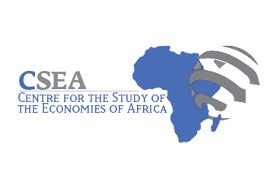The Centre for the Study of Economies in Africa (CSEA) has charged the federal and state governments on the need to ensure that borrowed funds are utilized for capital projects with great value-addition potential for the nation’s sustainable development.
The economic research think-tank gave the charge in its ‘Nigeria Economic Update Issue 37’ sourced by BRTNews.ng at the weekend.
The CSEA researchers in the report noted that while the increase in external debt is in line with the DMO’s optimal debt portfolio mix of 60:40 for domestic and external debt, the rise in debt continued to pose serious fiscal concerns as the government currently utilizes 96% of its revenue for debt servicing.
The analysts stated that the high debt service to revenue ratio had implications on development spending considering the modest revenue that is left.
They cautioned: “Careful consideration should be taken to ensure that that the debt is utilized for capital projects that can potentially service the loans in the future.”
Latest data from the Debt Management Office (DMO) indicated that Nigeria’s total public debt stock rose to N31 trillion ($85.9 billion) from N28.6 trillion ($79.3 billion) between the first and second quarter this year.
The fiscal authorities attributed the spike in the debt stock to the $3.36 billion budget support loan from the International Monetary Fund (IMF) which accounted for more than 50% of the increment in debt.
Analysts forecast that in the near term, Nigeria’s debt portfolio is expected to increase as the fiscal authorities are exploring borrowing windows to access concessional funding from the World Bank, African Development Bank, and Islamic Development Bank to support the implementation of the 2020 budget.






